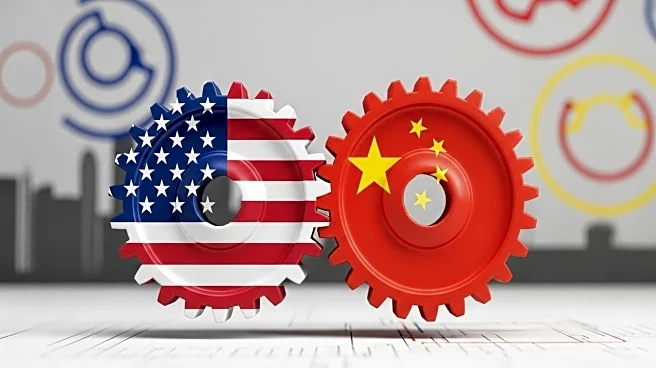What's Happening?
Trade tensions between the United States and China are intensifying after a period of relative calm. Recent actions by both nations have reignited hostilities, with China imposing strict limits on exports of rare earth minerals, crucial for high-tech products. In response, President Trump has threatened a 100% tax on Chinese imports and export controls on American software. These developments have unsettled global markets, with the S&P 500 experiencing its worst day since April. The renewed trade conflict comes as both countries prepare for potential negotiations, although the outcome remains uncertain.
Why It's Important?
The escalation in trade tensions between the U.S. and China has significant implications for global markets and industries. The restrictions on rare earth minerals by China could impact the technology sector, which relies heavily on these materials. Additionally, the proposed tariffs by the U.S. could lead to increased costs for American consumers and businesses, affecting the availability and pricing of goods. The uncertainty surrounding trade negotiations adds to market volatility, influencing investor confidence and economic stability. Both nations are vying for strategic advantage, with potential repercussions for international trade relations.
What's Next?
The upcoming Asia-Pacific Economic Cooperation summit may provide a platform for President Trump and Chinese leader Xi Jinping to discuss the trade conflict. However, the likelihood of reaching a resolution remains uncertain, as both sides continue to leverage tariffs and export controls as bargaining tools. The situation could further escalate if negotiations fail, leading to more stringent trade measures and increased economic strain. Stakeholders, including businesses and policymakers, will closely monitor developments, seeking strategies to mitigate potential impacts on supply chains and market dynamics.
Beyond the Headlines
The trade tensions highlight the broader geopolitical rivalry between the U.S. and China, with both nations seeking to assert their influence in global economic affairs. The conflict underscores the complexities of international trade, where economic policies are intertwined with political strategies. The reliance on rare earth minerals and technological advancements adds another layer to the dispute, emphasizing the importance of resource security and innovation in maintaining competitive advantage. The situation may prompt discussions on diversifying supply chains and exploring alternative sources for critical materials.











